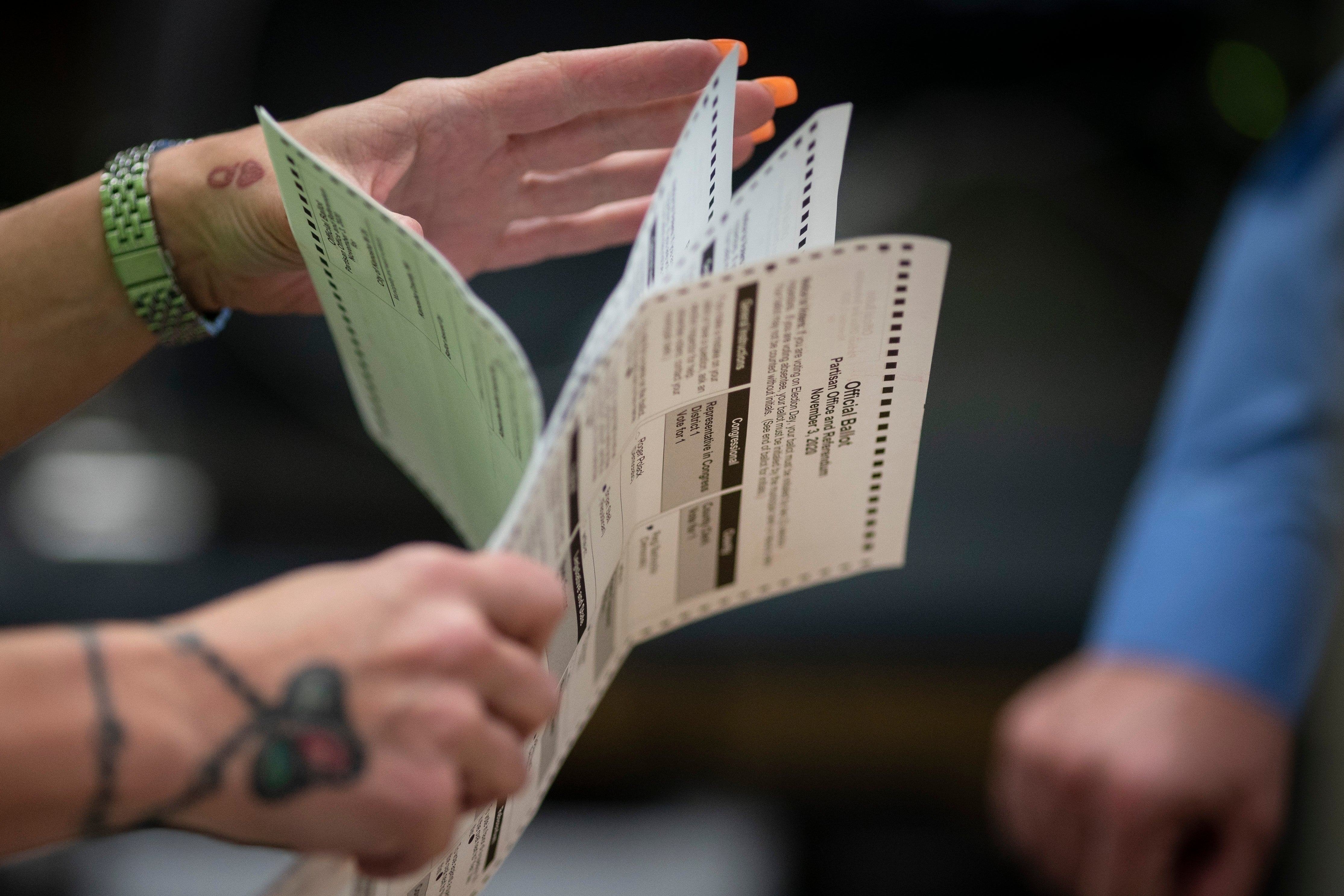People with disabilities sue in Wisconsin over lack of electronic absentee ballots
A lawsuit in Wisconsin argues that voters with disabilities should be able to cast their ballots electronically and that failing to provide that option for the upcoming Aug. 13 primary and November presidential election is discriminatory and unconstitutional

Your support helps us to tell the story
From reproductive rights to climate change to Big Tech, The Independent is on the ground when the story is developing. Whether it's investigating the financials of Elon Musk's pro-Trump PAC or producing our latest documentary, 'The A Word', which shines a light on the American women fighting for reproductive rights, we know how important it is to parse out the facts from the messaging.
At such a critical moment in US history, we need reporters on the ground. Your donation allows us to keep sending journalists to speak to both sides of the story.
The Independent is trusted by Americans across the entire political spectrum. And unlike many other quality news outlets, we choose not to lock Americans out of our reporting and analysis with paywalls. We believe quality journalism should be available to everyone, paid for by those who can afford it.
Your support makes all the difference.Wisconsin voters with disabilities should be able to cast their ballots electronically and failure to provide that option for the upcoming Aug. 13 primary and November presidential election is discriminatory and unconstitutional, a lawsuit filed Tuesday in the battleground state alleges.
The lawsuit seeks to require that electronic absentee voting be an option for people with disabilities, just as it is for military and overseas voters. Under current Wisconsin law, people with disabilities are “treated unequally and face real and considerable hurdles to participating in absentee voting," the lawsuit argues.
Absentee ballots, including who can return them and where, have been a political flashpoint in swing state Wisconsin, where four of the past six presidential elections have been decided by less than a percentage point. The Wisconsin Supreme Court is scheduled to hear arguments next month in a case seeking to overturn a previous ruling banning absentee ballot drop boxes.
A federal court sided with disability rights activists in 2022 and said the Voting Rights Act applies to Wisconsin voters who require assistance with mailing or delivering their absentee ballot because of a disability. The ruling overturned a Wisconsin Supreme Court ruling that said only the voter can return their ballot in person or place it in the mail.
The new case was filed against the Wisconsin Elections Commission in Dane County Circuit Court by four voters, Disability Rights Wisconsin and the League of Women Voters. A spokesperson for the elections commission did not return a message seeking comment.
Voters with disabilities must have the ability to vote electronically in order for Wisconsin to comply with a variety of state and federal laws related to accommodation and equal-access, the lawsuit argues. Electronic voting will also ensure that people with disabilities are treated the same as other voters, the lawsuit contends.
The lawsuit states that because absentee voting for most in Wisconsin is by paper ballot, many people with disabilities are unable to cast their votes without assistance. They could vote in private if electronic voting were an option, the lawsuit argues.
“This unconstitutional defect in Wisconsin’s absentee ballot system is well-known yet remains unaddressed,” the lawsuit alleges.
The individuals who brought the lawsuit are Donald Natzke, of Shorewood, and Michael Christopher, of Madison, both of whom are blind; Stacy Ellingen, of Oshkosh, who has cerebral palsy; and Tyler Engel, of Madison, who has spinal muscular atrophy. All four of them are unable to vote absentee privately and independently, the lawsuit argues.
The lawsuit alleges that not providing electronic absentee voting for people with disabilities violates the state and federal constitutions, the Americans with Disabilities Act and the federal Rehabilitation Act, which prohibits all organizations that receive federal financial assistance from discriminating on the basis of disability.
People with disabilities make up about one-fourth of the U.S. adult population, according to the Centers for Disease Control and Prevention. They have been ensnared in battles over access to the polls as many Republican-led states have passed restrictive voting laws in recent years, including over limits on what assistance a voter can receive and whether someone else can return a voter’s mailed ballot.